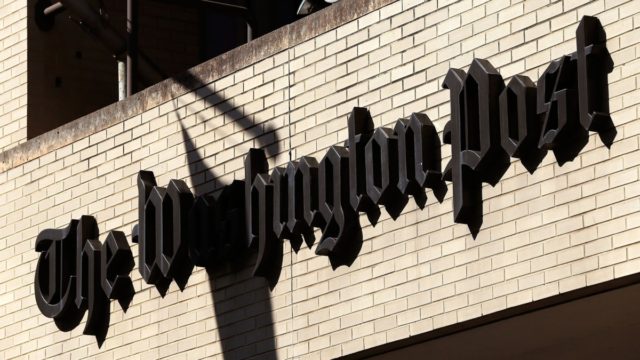Trump Campaign Sues Washington Post
March 6, 2020
U.S. President Donald Trump’s re-election campaign sued The Washington Post on Tuesday after alleging two opinion articles published last year that said it falsely claimed the campaign conspired with Russia.
The campaign filed it’s lawsuit a week after the Trump campaign filed a similar suit against The New York Times.
The lawsuit cites a June 13 opinion piece by Greg Sargent that said Trump “tried to conspire with” a “sweeping and systematic” attack by Russia against the 2016 U.S. presidential election. It also cites a June 20th opinion piece by Paul Waldman that asked “who knows what sort of aid Russia and North Korea will give to the Trump campaign, now that he has invited them to offer their assistance?”
“The statements were and are 100 percent false and defamatory,” Jenna Ellis, a senior legal adviser to the Trump campaign, said in a statement.
“There has never been any statement by anyone associated with the campaign or the administration ‘inviting’ Russia or North Korea to assist the campaign in 2019 or beyond,” the court filing said. “There also has never been any reporting that the campaign has ever had any contact with North Korea relating to any United States election.”
The Trump campaign said it filed the lawsuit to “publicly establish the truth,” “properly inform” readers of true facts and “seek appropriate remedies for the harm caused” by the reporting.
“The articles at issue herein also are part of the Post’s systematic pattern of bias against the Campaign, designed to maliciously interfere with and damage its reputation and ultimately cause the organization to fail,” the complaint added.
The Trump campaign also said in the complaint that the reporting cost the campaign “millions of dollars.”
Lawsuits for libel against media organizations by public figures must require a showing that the media organization was reckless in reporting a falsehood which means either that the organization knew the information was false, or intentionally disregarded a significant risk that the material was false.
In a statement, the Times shot back: “The Trump Campaign has turned to the courts to try to punish an opinion writer for having an opinion they find unacceptable. Fortunately, the law protects the right of Americans to express their judgments and conclusions, especially about events of public importance. We look forward to vindicating that right in this case.”


